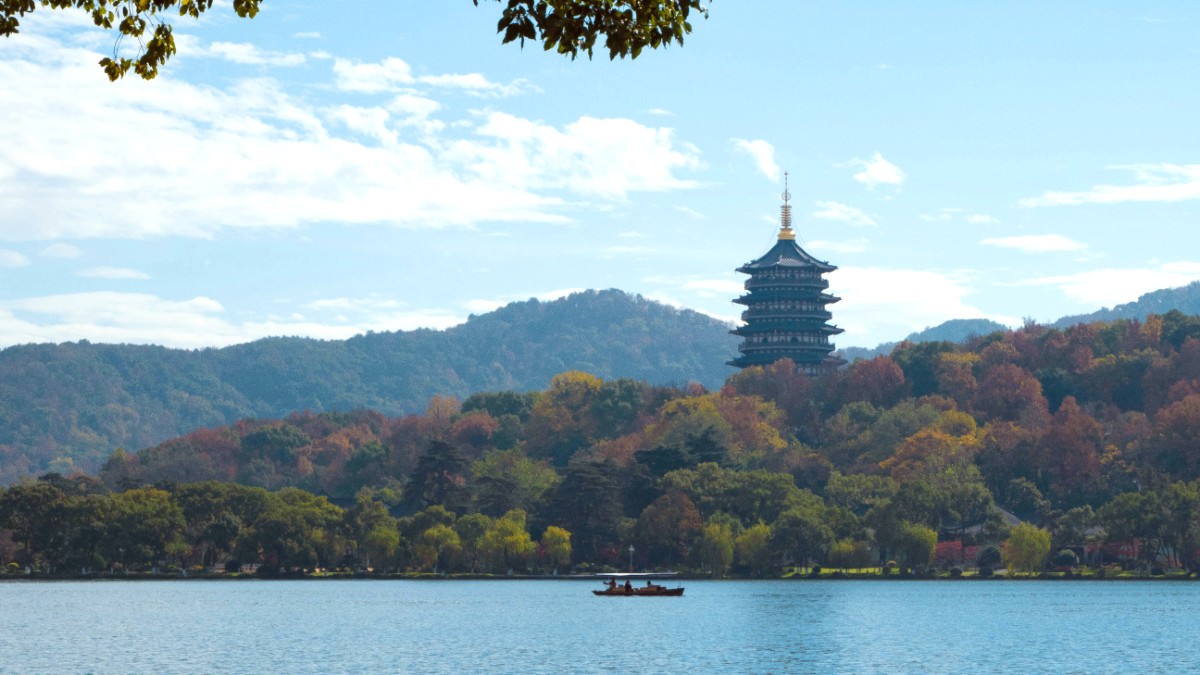
Zhejiang, China
Hangzhou cuisine relies on fresh seafood from local rivers and coastal areas, freshwater fish (especially West Lake carp), bamboo shoots, and renowned tea leaves (Longjing tea). Jinhua ham also features in many dishes.
The cuisine focuses on clear broths and subtle seasonings. Flavors are typically less oily and spicy compared to northern or Sichuan cuisines, aiming for a harmonious balance highlighting natural ingredient taste.
Often includes congee, noodles, steamed buns, fried dough sticks, and soy milk. Available from early morning until around 9-10 AM.
Served from approximately 11:30 AM to 1:30 PM.
Usually from 5:30 PM to 8:00 PM. Many local restaurants close relatively early.
Braised pork belly, slow-cooked until incredibly tender, rich, and flavorful.
Found in most traditional Hangzhou restaurants.
A whole chicken wrapped in lotus leaves, then encased in clay and baked slowly for tender, aromatic meat.
Best at restaurants known for traditional Hangzhou cuisine.
Steamed freshwater fish (often carp) topped with a sweet and sour vinegar sauce.
Look for it in restaurants near West Lake.
Fried Noodles with Shredded Pork and Preserved Vegetables, a comforting local noodle dish.
Pan-fried soup dumplings, offering a crispy bottom and juicy filling.
Experience sophisticated flavors and elegant settings.
Many local restaurants provide excellent value.
Affordable local snacks and quick meals.
Hangzhou has a growing number of international restaurants, notably in major commercial areas and hotels.
Find Japanese, Korean, Italian, American, and other cuisines.
These establishments cater to a wide range of tastes, providing options beyond local specialties.
Check commercial hubs like Wulin Square or Binjiang District.
Lively spot for street food and snacks in the evening (check status).
Glimpse into local life; offers fresh produce and ingredients.
Discover diverse quick bites from vendors.
Various affordable options for casual dining.
Limited but available. Look for specific Halal restaurants (清真), often serving Xinjiang or Northwestern Chinese cuisine.
Hangzhou has a mosque with associated Halal eateries.
Extremely rare. Travelers requiring Kosher food should plan to self-cater or stick to fresh fruits and packaged goods from larger supermarkets.
No dedicated Kosher restaurants are widely available.
Online forums and apps (e.g., HappyCow for vegetarian/vegan options) can help locate specific restaurants meeting dietary needs.
For strict diets, consider purchasing fresh ingredients from local supermarkets or specialty stores and preparing meals yourself where possible.
Local companies offer classes focusing on Hangzhou cuisine, learning preparation techniques for classic dishes.
Tours to Longjing Tea Plantations offer insights into tea cultivation and processing.
Explore various eateries and street food areas with a guided tasting experience.
Hangzhou hosts various food-related events, especially around the tea harvesting season in spring.
Longjing Tea Picking Festival (late March/early April) is a event.
A festive time (September/October) to enjoy moon viewing around West Lake and try mooncakes.
Experience the Qiantang River Tide bore.
Immerse in local traditions with tea house dining or imperial cuisine experiences.
Explore authentic Buddhist vegetarian meals found near temples for a meat-free option.
Try West Lake Water Shield Soup or Sweet Osmanthus Cake for unique local flavors.
Be adventurous with street food, but opt for busy, well-regarded stalls for freshness.